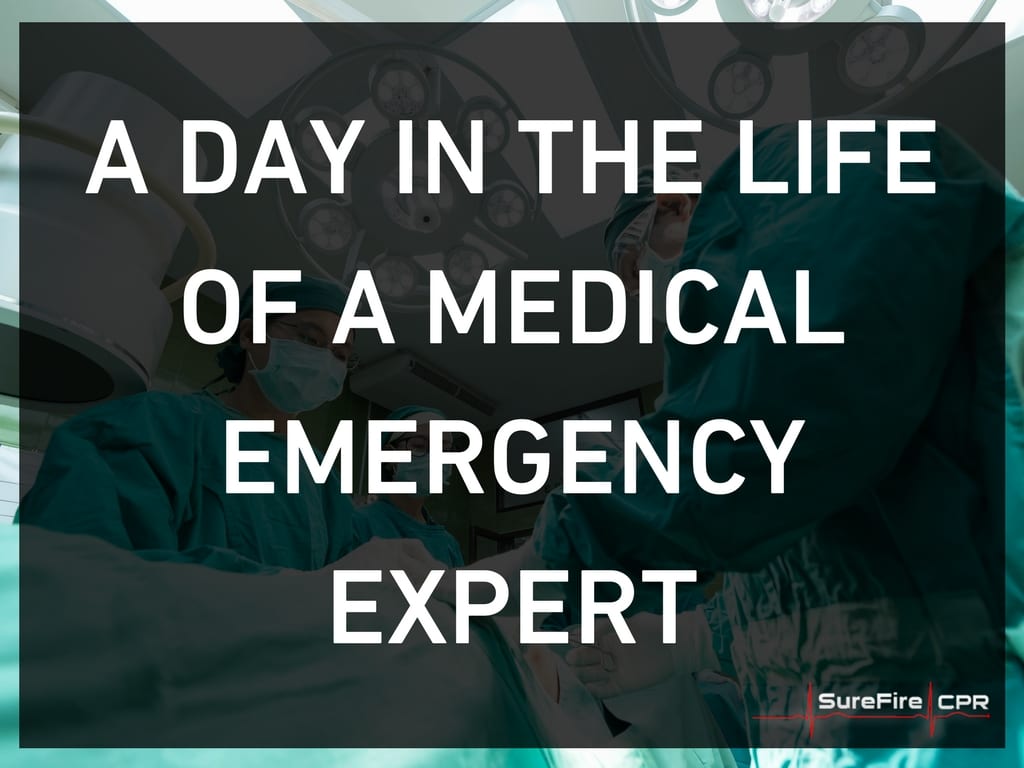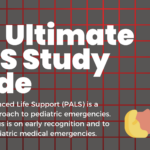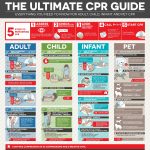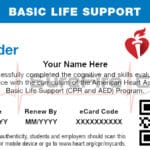No two medical emergencies are exactly alike. However, emergency responders are expected to know exactly what to do in all medical emergencies, at all times. Without the right skills and training, emergency responders will struggle to administer life-saving support to those in need.
According to one medical emergency expert, working in EMS is like riding an emotional roller-coaster. Each day presents new opportunities to save lives, and a typical day has many ups and downs, the expert indicated. Additionally, anticipation frequently builds until the time arrives to provide life-saving assistance. And when this moment arrives, an emergency responder leaps into action and does everything possible to help prevent the loss of life.
In most instances, emergency responders are among the first people to arrive at the scene of a life-threatening situation. They are responsible for promoting and ensuring the health, protection and safety of individuals and communities, along with managing crises and working in dangerous or unstable settings.
Emergency responder work can be hazardous. But despite the dangers of day-to-day work, most emergency responders are unlikely to change their careers anytime soon. The opportunities to face and overcome new challenges is significant in the emergency responder field. Plus, the camaraderie among emergency responders is strong, and emergency responders constantly work together to achieve the best possible results.
Although the work of an emergency responder is challenging, the rewards associated with a job well done are substantial. Thus, an emergency responder always strives to go above and beyond the call of duty to help emergency victims in any way possible. And with this approach, an emergency responder constantly puts himself or herself in the best position to succeed.
Emergency responders must prepare for the worst-case scenarios. There is no telling when a life-threatening situation might occur. Fortunately, successful emergency responders understand what it takes to deliver the right support, to the right person, at the right time, every time. Regardless of whether an emergency involves firefighters, police officers, medical personnel or other parties, emergency responders know what it takes to handle life-threatening situations.
“You have to be able to ‘switch on.’ Every time the phone rings, you have to be prepared for the worst and go from there,” said Chris Swiatek, Telecommunicator IV for Northwest Central Dispatch System, an intergovernmental consolidated emergency dispatch system that administers 911 services for various northwest suburban Chicago communities.
Of course, emergency responders must be ready to perform a wide range of life-saving tasks, including:
- Carrying the sick and feeble
- Performing cardiopulmonary resuscitation (CPR) and other life-saving techniques
- Providing emotional support to emergency victims and their families
How emergency responders approach their everyday work may dictate their success in the field. If emergency responders act with care and compassion toward emergency victims, they may be better equipped than others to deliver life-saving results.
For emergency responders, Swiatek offers one simple recommendation: “Don’t lose your compassion.” If emergency responders take a proactive approach and are always wanting and willing to help emergency victims, they can always make a difference in their respective communities.
“It is easy to become cold, because we deal with emergencies every day. Every caller needs the same empathy from us,” Swiatek stated.
Expect the number of emergency responders to increase in the foreseeable future. The U.S. Bureau of Labor Statistics (BLS) has projected the number of emergency medical technicians (EMTs) and paramedics will grow at a rate of 23.1 percent between 2012 and 2022. Also, the BLS has estimated the number of firefighters and police will increase 6.6 percent and 5.9 percent, respectively, during this time frame.
As more people eye careers as emergency responders, the competition for EMT, firefighter, police officer and other emergency responder jobs likely will be fierce. Therefore, individuals who want to thrive as emergency responders may want to get a head start on the competition.
To prepare for a career as an emergency responder, it is essential to enroll in classes from a proven emergency training course provider. Now, SureFire CPR makes it simple for anyone to obtain life-saving skills in a variety of areas, including:
- Basic Life Support (BLS): Our BLS class is ideal for healthcare professionals who want to learn single-rescuer and team life support skills.
- First Aid: During our first aid class, individuals will learn how to deliver first aid support to emergency victims until advanced medical personnel arrive on scene.
To find out more about our course offerings, please call us today at (888) 277-3143.











